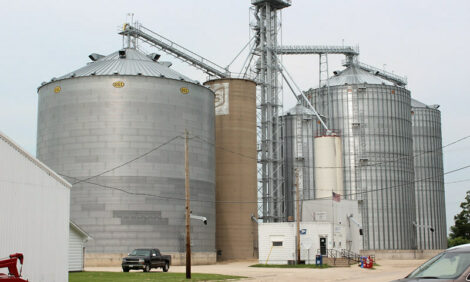



Quebec's Quibble Over G4 Dairy And Poultry Plans
QUEBEC - While a major meeting is being held between trade ministers of the G4 countries - the United States, European Union, India and Brazil - and in light of the latest proposals by the World Trade Organization (WTO), which are very harmful to them, the Quebec dairy, poultry and egg sectors are challenging the Government of Canada.Quebec's Minister of Agriculture, Fisheries and Food, Mr. Laurent Lessard, and the President of the Union des producteurs agricoles (UPA) and spokesperson of the GO5 Coalition for a Fair Farming Model, Supply Management, Mr. Laurent Pellerin, stated in a press conference that "The Canadian government is responsible for the WTO negotiations and their outcome. That outcome will be considered positive if and only if the farmers under supply management are winners at the end of these negociations."
"It is clear that what is currently being discussed at the WTO will not allow Canada to reach its objective. On the contrary, the modalities proposed would have disastrous effects on the dairy and poultry sectors,"
Mr. Pellerin.
Mr. Lessard and Mr. Pellerin were accompanied by the presidents of the Fédération des producteurs de lait du Québec, Mr. Marcel Groleau, the Eleveurs de volailles du Québec, Mr. Martin Dufresne, the Fédération des producteurs d'oeufs de consommation du Québec, Mr. Serge Lefebvre, the Syndicat des producteurs d'oeufs d'incubation du Québec, Mr. Gyslain Loyer, and the Coop fédérée, Mr. Denis Richard, all Coalition GO5 partners.
The reference document submitted at the end of April by the Chairman of Agricultural Negotiations, Crawford Falconer, anticipated major decreases in customs tariffs that would prevent Canada from controlling its imports in sectors under supply management. "It is clear that what is currently being discussed at the WTO will not allow Canada to reach its objective. On the contrary, the modalities proposed would have disastrous effects on the dairy and poultry sectors," stated Mr. Pellerin.
Mr. Pellerin reminded the federal government of its commitment to achieve a positive outcome for the sectors under supply management at the end of this round of negotiations. The stakes are high, since these sectors represent nearly $3 billion in farm income, or more than 40% of the Quebec total. They keep 75,000 people employed and generate several billions of dollars in economic benefits.
Following the example of other countries such as Norway, Iceland and Switzerland, it is up to Canada to advocate the particular sensitivity of its sectors under supply management to obtain special measures. "What we are doing here today is very important. We are showing the other WTO member countries that supply management is a major issue for Quebec and Canada. We are offering all our support to the Minister of Agriculture in order to achieve the objective of a positive final outcome for supply management," said Mr. Lessard.
A great deal of the current agricultural trade problems are the result of agricultural subsidizing by the US and Europe. Both the United States and Europe have changed their farm subsidies in order to maintain support despite the reductions proposed by the WTO. Coalition spokesperson Mr. Pellerin pointed out that less than 10% of world food products are traded between countries. Even in Canada, which is the fourth largest world exporter of agricultural products, 70% of farm income is derived from the domestic market.
Mr. Pellerin emphasized that supply management, which has been practiced in Canada for almost forty years for dairy and poultry sectors, fosters quality home-grown food at reasonable prices and allows family farms to earn a fair income from the marketplace without the need for government subsidies. Supply management encourages local farming that reduces greenhouse gas emissions from the transportation of food products. For the President of the UPA, this unique model embodies the founding principles of the right to food sovereignty that is being increasingly promoted around the world. Beyond the immediate issues, he believes that an alternative to the all-out liberalization of agricultural trade proposed by the WTO is necessary. The right to food sovereignty, supply management and collective marketing are future solutions to achieve this goal in the interest of all. "The Canadian government should show leadership at the international level and propose food sovereignty and supply management as the basis for sustainable agricultural and agri-food development," concluded Mr. Pellerin.
"In addition to being an excellent way to fill the plates of Quebec families with Quebec products, supply management is being used all over Quebec and contributing to the economic and social vitality of Quebec's regions. For us, it is the identify Quebec agriculture. That is why the federal government must do everything it can to promote and defend supply management, the key element of our agricultural sector," concluded Mr. Lessard.
TheCattleSite News Desk


